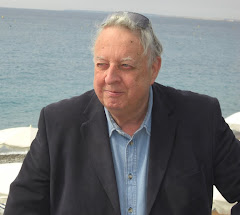I have never been a fan of the music of Benjamin Britten, bar a few works. I have just listened to a recording of his double concerto for violin, viola and orchestra (completed from drafts). Except for a few passages in the second and third movements, it seems to me to be music written without passion. It was played (very well) in a recent recording by Baiba Skride, with Ivan Vukcevic (viola) and Marin Alsop conducting the ORF Radio Symphony Orchestra. I have only one other recording of the work (Anthony Marwood and Lawrence Power, with Ilan Volkov conducting the BBC Scottish Symphony Orchestra). Apart from the Bach D minor concerto for two violins, I don't think duo concertos work too well.
How different is Britten's one and only violin concerto, written in 1938-9 and frequently revised. I have many recordings of the piece on my shelves, including violinists such as James Ehnes, Julia Fischer, Augustin Hadelich, Janine Jansen, Simone Lamsma, Arabella Steinbacher, and Frank Peter Zimmermann (the latter with three different recordings). The concerto breathes passion, much like Shostakovich's first violin concerto of a few years later. The Britten concerto has come into its own only recently but, to my mind, it is a better piece of music than the ultra-popular concertos of Mendelssohn and Bruch (G minor).
The Latvian violinist Baiba Skride gives a magnificent performance of the violin concerto, with the same backing as with Britten's double concerto. She brings out all the dark passion of the violin concerto and is technically impeccable. Orchestra, balance and recording quality are all excellent. I recently praised the recording of the work by Kerson Leong. Skride is on the same level.
To complete my Baiba Skride listening, I heard Bartok's two Rhapsodies for violin and orchestra (WDR Sinfonieorchester Köln conducted by Eivind Aadland). Not bad, but not music I will return to often, like most of Bartok's music.
